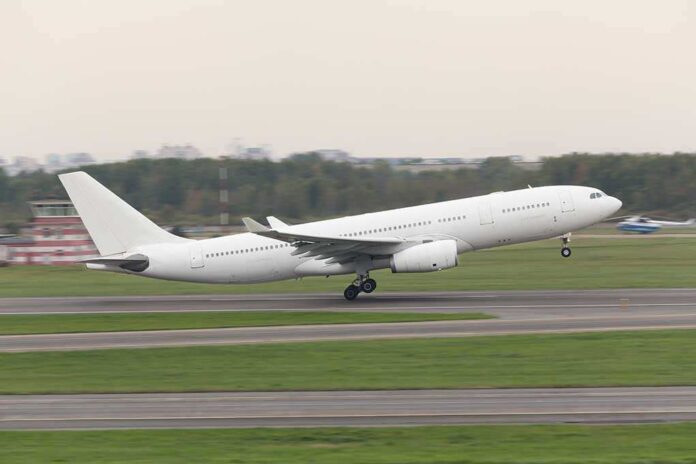
The U.S. Federal Aviation Administration (FAA) has suspended flights to Haiti for at least 30 days after two American planes were hit by gunfire near Port-au-Prince, highlighting the escalating violence and instability in the Caribbean nation.
At a Glance
- FAA bans U.S. flights to Haiti for at least 30 days due to security concerns
- Two American planes, including a Spirit Airlines flight, were hit by gunfire near Port-au-Prince
- Gangs control about 80% of Port-au-Prince, despite international intervention
- Haiti’s main airport is closed, disrupting humanitarian aid and commercial travel
- The U.S. Embassy warns of unpredictable and dangerous security situations in Haiti
FAA Imposes Flight Ban to Haiti
The Federal Aviation Administration has taken decisive action by prohibiting U.S. flights to Haiti for at least 30 days. This ban includes a temporary restriction on most U.S. flights traveling under 10,000 feet in Haitian airspace. The FAA cited the “safety of flight risks associated with ongoing security instability” as the primary reason for this drastic measure.
The decision comes in the wake of two separate incidents where American planes were hit by gunfire near Toussaint Louverture International Airport in Port-au-Prince. A JetBlue plane and Spirit Airlines Flight 951 were both targeted, with the Spirit flight being forced to divert to Santiago, Dominican Republic, after a crew member sustained minor injuries.
Airlines Respond to Security Threats
In response to these alarming incidents, major U.S. airlines have taken immediate action. JetBlue has canceled all flights until December 2, while American Airlines has halted operations until at least Thursday. Spirit Airlines has gone a step further, canceling all flights pending a thorough investigation. These measures underscore the gravity of the security situation in Haiti and its impact on international travel.
“As a result, all UN flights have been suspended, obviously limiting the flow of humanitarian aid and humanitarian personnel into the country,” said UN spokesperson Stephane Dujarric.
The suspension of flights extends beyond commercial airlines. The United Nations has also halted its flights to Haiti, significantly impacting the delivery of humanitarian aid and the movement of essential personnel. This development further isolates Haiti at a time when international support is crucial.
Haiti’s Escalating Crisis
The flight ban is a symptom of a much larger crisis engulfing Haiti. Gangs now control approximately 80% of Port-au-Prince, despite the presence of a Kenyan-led international force. The country is grappling with political instability, poverty, and rampant violent crime, including robberies, rapes, and kidnappings.
“The acute and immediate needs of the Haitian people mandate that the transitional government prioritize governance over the competing personal interests of political actors,” stated State Department spokesman Matthew Miller.
The situation has been further complicated by the recent firing of Haitian Prime Minister Garry Conille and his replacement by businessman Alix Didier Fils-Aime. This political shake-up coincides with the escalation of gang violence, raising concerns about the country’s ability to address its mounting challenges.
International Response and Future Outlook
The international community is closely monitoring the situation in Haiti. The U.S. Embassy in Port-au-Prince has issued a travel alert for American citizens, warning of gang-led efforts to block travel and potential armed violence. The embassy states unequivocally that the security situation in Haiti is unpredictable and dangerous, advising that travel within the country is at one’s own risk.
As Haiti grapples with this multifaceted crisis, the international community faces the challenge of providing support while ensuring the safety of its personnel. The flight ban, while necessary for security reasons, further complicates efforts to deliver aid and stabilize the country. With elections planned for 2026, Haiti’s path to stability remains long and fraught with obstacles, requiring sustained international attention and support.
Sources:
FAA bans U.S. flights to Haiti after 2 American planes hit by gunfire
US bans flights to Haiti for a month after gunfire hit Spirit airliner
US bans flights to Haiti after three jetliners hit by gunfire
US bans flights to Haiti after airliner hit by gunfire












